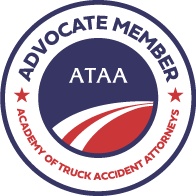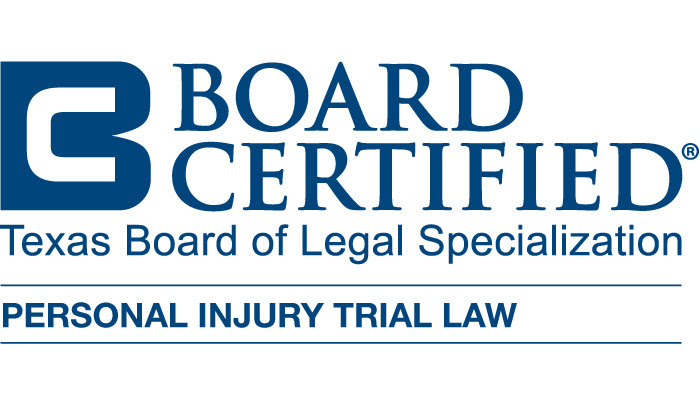Wrongful death accidents in Texas are tragic events that leave families in unimaginable pain and suffering. When a loved one is taken away suddenly and unexpectedly due to the negligence or misconduct of another party, the emotional and financial toll can be overwhelming. The process of navigating the legal landscape in the aftermath of such a loss is complex and often confusing, making it essential to understand the various aspects of wrongful death claims in Texas. This comprehensive overview aims to shed light on the intricacies of wrongful death accidents in Texas, providing families with the knowledge needed to seek justice and compensation for their loss.


The Legal Framework for Wrongful Death Claims in Texas
Texas law provides a framework for families to seek justice and compensation through wrongful death claims. These claims are governed by the Texas Wrongful Death Act, which outlines the rights of surviving family members and the procedures for filing a claim. According to the law, a wrongful death claim can be filed when an individual’s death is caused by the wrongful act, neglect, carelessness, unskillfulness, or default of another person or entity. The purpose of the wrongful death claim is to provide financial compensation to the surviving family members for the losses they have suffered as a result of their loved one’s death.
In Texas, only certain family members are eligible to file a wrongful death claim. These include the deceased person’s spouse, children, and parents. Siblings, grandparents, and other relatives are not permitted to file a wrongful death claim under Texas law. Additionally, if the eligible family members do not file a claim within three months of the death, the executor or administrator of the deceased person’s estate may file the claim, unless requested not to do so by the eligible family members.
My focus is to give a voice to families who have suffered a wrongful death or a serious injury to a family member caused by an 18-Wheeler, commercial truck, or a drunk driver. Contact us today, we can help you.Helping Injury Victims for Over 25 Years
Common Causes of Wrongful Death Accidents
Wrongful death accidents can occur in a variety of situations, and they often result from the negligent or intentional actions of others. Some of the most common causes of wrongful death accidents in Texas include motor vehicle accidents, medical malpractice, workplace accidents, and defective products.
Motor vehicle accidents are a leading cause of wrongful death in Texas. These accidents can involve cars, trucks, motorcycles, and pedestrians, and they often result from reckless driving, speeding, distracted driving, driving under the influence of alcohol or drugs, and other forms of negligence. The sudden loss of a loved one in a motor vehicle accident can leave families devastated and searching for answers.
Medical malpractice is another common cause of wrongful death. This occurs when a healthcare provider fails to provide the standard of care expected in their profession, leading to the death of a patient. Medical malpractice cases can involve surgical errors, misdiagnosis, medication errors, birth injuries, and other forms of medical negligence. Families who lose a loved one due to medical malpractice often face a long and challenging legal battle to hold the responsible parties accountable.
Workplace accidents can also result in wrongful death claims. These accidents can occur in various industries, including construction, manufacturing, and transportation. Common causes of workplace wrongful death accidents include falls, equipment malfunctions, exposure to hazardous substances, and lack of proper safety measures. When a loved one is killed in a workplace accident, surviving family members may be entitled to compensation through a wrongful death claim.
Defective products are another significant cause of wrongful death accidents. When a product is designed, manufactured, or marketed in a way that makes it unsafe for consumers, it can lead to fatal accidents. Examples of defective products that can cause wrongful death include faulty vehicles, dangerous pharmaceuticals, defective medical devices, and unsafe household products. Families affected by the death of a loved one due to a defective product may pursue a wrongful death claim against the manufacturer, distributor, or retailer responsible for the product.
The Process of Filing a Wrongful Death Claim
Filing a wrongful death claim in Texas involves several steps, and it is essential for families to understand the process to ensure their rights are protected. The first step in filing a wrongful death claim is to determine eligibility. As mentioned earlier, only certain family members, including the deceased person’s spouse, children, and parents, are eligible to file a wrongful death claim in Texas.
Once eligibility is established, the next step is to gather evidence to support the claim. This may include medical records, accident reports, witness statements, and other relevant documentation that demonstrates the negligence or misconduct of the responsible party. It is crucial to collect and preserve this evidence as soon as possible, as it can be vital in proving the wrongful death claim.
After gathering evidence, the next step is to file the wrongful death claim with the appropriate court. This involves drafting and submitting a legal complaint that outlines the facts of the case, the negligence or misconduct of the responsible party, and the damages being sought. The complaint must be filed within the statute of limitations, which is generally two years from the date of the deceased person’s death. However, there may be exceptions or specific circumstances that could affect this timeline, so it is important to consult with an attorney to ensure the claim is filed within the appropriate timeframe.
Once the wrongful death claim is filed, the legal process begins. This typically involves a period of discovery, where both parties exchange information and evidence related to the case. During this phase, depositions, interrogatories, and requests for documents may be conducted to gather additional evidence and build a strong case. Settlement negotiations may also take place during this time, as the parties attempt to reach a resolution without going to trial.
If a settlement cannot be reached, the case may proceed to trial. During the trial, both parties present their evidence and arguments to a judge or jury, who will then determine whether the responsible party is liable for the wrongful death and, if so, the amount of compensation that should be awarded. The trial process can be lengthy and complex, making it essential to have experienced legal representation to navigate the proceedings and advocate for the family’s rights.
Related Videos
Choosing a Personal Injury Attorney
Types of Compensation in a Truck Accident Claim
Types of Compensation in Wrongful Death Claims
The goal of a wrongful death claim is to provide financial compensation to the surviving family members for the losses they have suffered as a result of their loved one’s death. There are several types of compensation that may be awarded in a wrongful death claim, including economic damages, non-economic damages, and punitive damages.
Economic damages are intended to compensate the family for the financial losses they have incurred due to the death of their loved one. This may include medical expenses incurred prior to the death, funeral and burial costs, loss of the deceased person’s income and benefits, and loss of inheritance. Economic damages aim to alleviate the financial burden placed on the family and help them move forward after their loss.
Non-economic damages are awarded to compensate the family for the non-financial losses they have experienced. This may include compensation for the pain and suffering endured by the deceased person prior to their death, loss of companionship and support, mental anguish, and emotional distress experienced by the surviving family members. Non-economic damages recognize the profound impact the loss of a loved one has on the family’s emotional well-being and quality of life.
Punitive damages may also be awarded in certain wrongful death cases. These damages are intended to punish the responsible party for their egregious conduct and deter similar behavior in the future. Punitive damages are typically awarded in cases where the responsible party’s actions were particularly reckless, intentional, or malicious. While punitive damages are not available in all wrongful death cases, they can provide an additional layer of justice and accountability in cases involving extreme negligence or misconduct.
The Importance of Legal Representation
Navigating the legal complexities of a wrongful death claim can be overwhelming for families already coping with the emotional aftermath of their loss. Having skilled legal representation is crucial to ensure the family’s rights are protected and to maximize the compensation they receive. An experienced attorney can guide the family through each step of the legal process, from gathering evidence and filing the claim to negotiating settlements and representing the family in court.
Legal representation also provides the family with access to resources and expertise that can strengthen their case. This may include working with medical professionals, accident reconstruction specialists, and other experts who can provide valuable testimony and evidence to support the claim. An attorney can also handle communication with insurance companies and opposing counsel, allowing the family to focus on healing and remembering their loved one.
If you have lost a loved one due to a wrongful death accident in Texas, it is essential to seek legal guidance as soon as possible. The compassionate and dedicated team at Willumsen Law Firm, P.C. understands the profound impact such a loss can have on your family. We are committed to helping you navigate the legal process and obtain the justice and compensation you deserve. Our experienced attorneys will work tirelessly to investigate the circumstances of your loved one’s death, gather evidence, and build a strong case on your behalf. Contact Willumsen Law Firm, P.C. today for a free consultation and let us help you through this challenging time.



